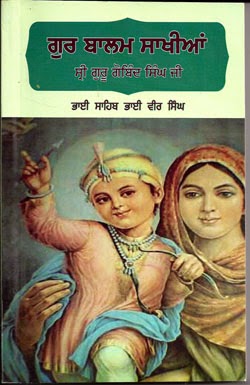Akal Ustat is written by Tenth Guru Sri
Guru Gobind Singh Ji. It is the second Bani, which we can find in the holy book
the ‘Dasam Granth’ signed by none other than our tenth Guru, Sri Guru Gobind
Singh Ji. The pious words bestowed upon to this literary piece revolve around
the words of the Guru and his teachings. The literary meaning of ‘Akal Ustat’ is
praising the almighty with all heart and soul. This in the Guru’s view can only
happen when our mind is free from all caste discrimination and very one is
allowed to praise God, the eternal power. This compilation has 271 verses
created in different languages.
This
Bani also shows clear reference to caste system and his denial of its very
existence. Caste system regards one group or religion, superior than the other.
Even its history, culture, color and creed are considered supreme than the
other which faces the brunt of being inferior. Our Guru Sahib said “all human
beings should be considered as One with every one enjoying equal rights and
priviledges”.
The Bani ‘Akal
Ustat’ has a style of writing presented through Imagery in the praise of the
almighty with equality of people in mind. The readings give us eternal peace
within, which is something very magical. Every soul engulfed with God’s benign
glory. Guru Sahib Guru Gobind Singh Ji says, “God is worshipped by various
peoples in many different ways and with varying names and methods thus:
Someone is Hindu and someone a Muslim, then someone is Shia, and someone a Sunni, but all human beings, as a species, are recognized as one and the same.
-(Guru Gobind Singh, Akal Ustat, Verse 85-15-1)
Read more, download book: Akal Ustat -Punjabi By Shiromani Gurdwara Parbandhak Committe, Amritsar
Someone is Hindu and someone a Muslim, then someone is Shia, and someone a Sunni, but all human beings, as a species, are recognized as one and the same.
-(Guru Gobind Singh, Akal Ustat, Verse 85-15-1)
Read more, download book: Akal Ustat -Punjabi By Shiromani Gurdwara Parbandhak Committe, Amritsar

